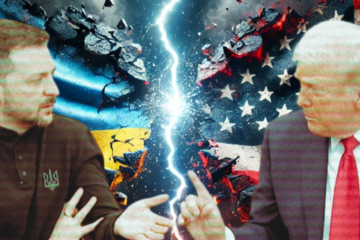Since the establishment of the United States Space Force in 2019, many in the federal defense establishment have aggressively fought to prevent the establishment of the Space National Guard. The reasons are numerous. In 2020 there was a Congressional Budget Office (CBO) report that claimed a Space National Guard component would be enormously expensive and add bureaucracy. The required personnel and infrastructure already exist and nearly 70 percent of Space Force warfighting capacity is already part of the Air National Guard. Official Air Force and National Guard budget numbers refute the CBO’s position.
Then it was argued that spacepower is solely a federal mission and the states have no role or requirement for space forces. The federal system of checks and balances purposefully divides power between the active and reserve component controlled by the president and the national guard controlled by governors.
While many Americans may remember from high school civics or college government class the Constitution’s separation of powers between the three branches of the federal government and the states, the Constitution also deals with a separation of military power. It was not in the founding father’s plan for all military power to be vested in the hands of the capitol and the president. It was intended to be distributed between the states and in partnership with the federal government.
If the federal bureaucracy’s push for centralization of American military spacepower is successful, it will set a dangerous precedent that ultimately leads to the consolidation of all national guard forces of the states (Army and Air Force) into the single component service model with the rest of the service branches. This, according to sources, was discussed as part of the plan. If it works for the Space Force, it will work for the rest of the services. Therefore, the states who created the federal government are at risk of losing even more power of self-defense to the federal leviathan than intended by the founding fathers and current law.
The active component has long sought to exercise day-to-day control over National Guard units that are not under Title 10 federal orders. Day-to-day, National Guard units answer to their governors and the adjutant general, who is appointed by the governor. As such, a working relationship between state military departments and the federal department of defense is a required check upon federal overreach.
This is frustrating to federal commanders, but as the Federalist Papers denote, this was part of the plan. James Madison stated in Federalist 46 that “the federal and state governments, are…[to] resist and frustrate the measures of each other.” The military and militia (now National Guard) were intended to be a security for the rights of civilians and a check against a large federal force from the “oppression of the several states.”
In fact, it was thought that the federal force should be smaller than the aggregated strength of state military forces as a means of defense from an overreaching federal force. The border situation is one example of where state control of armed forces as a means to fill a void left open by the federal government is so important. Hamilton agreed but thought that the states could also be overpowering if not checked by a federal force answerable to the president. So, a compromise was decided that a federal force combined with the checks of the states would be the best option in the constitutional system.
If military space forces are denied the states, who, despite the messaging of some in Washington, DC, that are actively leveraging space systems for state roles and functions, will challenge the idea circulating in the Pentagon and Biden administration that it is necessary to convert all military services to a federal-only single component of part-time and full-time forces? This is a move that is contrary to the Constitution’s purposeful efforts to create a system of checks and balances.
If successful, the single component concept will neuter the states’ abilities to check and be engaged in their policy of state self-defense and the broader national security debates of our time. The single component service model must be opposed, and the Space National Guard should join the established components of the Army and Air Force to ensure that the separation of military power between the states and the federal governments continue to provide the security we need as a country in this ever-growing time of geopolitical and astropolitical strife.
Christopher Stone is a Senior Fellow for space deterrence at the National Institute for Deterrence Studies. Stone is a former U.S. Special Assistant to the Deputy Assistant Secretary of Defense for space policy. The opinions expressed in this commentary are his own and do not necessarily reflect those of Core-CSI nor the Defense Department.




